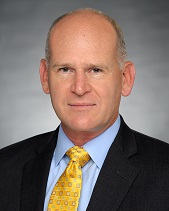As we write to you in June 2024, the first cohort application dates have passed and the third in August remains. Our team highlights key considerations for hospitals below:
1. Hospitals Should Monitor Whether Their State Applied for Cohorts 1 & 2 or Intend to Apply for Cohort 3
Applications for the first two cohorts were due by March 18th and awardees are anticipated to be announced later this month. If you are located in a state that did not apply for one of the first two cohorts, the second application period for Cohort 3 will open June 12, 2024 with applications due by August 12, 2024.
Hospitals interested in participating in the AHEAD model should be communicating with state agencies to:
- Determine if the state agency is planning to apply for participation at a state or sub-state level
- States potentially interested in applying to Cohort 3 can submit a non-binding letter of intent by July 26, 2024
- Help inform the state’s application process through collaboration on narratives and project plans, as well as drafting letters of support to strengthen the overall application
Leadership should begin evaluating needs (resourcing, financial, IT, infrastructure etc.) and related risks to set themselves up for success as official participation agreements will be executed with CMS by October/November 2025 for states in the first cohort.
2. Hospitals Should Prepare a Global Budget Financial Model to Understand Impact on Transition to VBP
In February 2024, CMS published its initial methodology for calculating the Medicare FFS hospital global budget. Hospitals will be paid via prospective, bi-weekly payments that are intended to cover the total cost of care (TCOC) for the attributed population of beneficiaries while improving quality and curbing growth in healthcare expenditures. The global budget baseline will be calculated using historical revenue and will be adjusted annually based on changes in market dynamics and performance. Certain adjustments incentivize early participation and strong performance that will impact your global budget in the future performance years of the model. See our previous article here for additional detail.
It is important to note that Version 2.0 of the hospital global budget financial specifications is expected to be released this summer, and CMS invites feedback on the methodology. This presents an opportunity for health systems to weigh in on where the methodology could be clearer and incorporate the most crucial factors. Special attention should be paid to this updated model for any changes that will impact the financial viability of participating in the AHEAD model.
Organizations interested in participating should consider the infrastructure that will need to be established and the capabilities needed to be successful. When evaluating participation, organizations should consider current state and gaps for the following areas:
- Data, interoperability, analytics and reporting
- Quality improvement
- Financial modeling
- Compliance and business operations
- Network and physician engagement
- Care coordination and management
- Patient experience and engagement
- Transactions and ventures
- Service line rationalization based on community need
- . Leadership governance and talent change management
4. Hospitals Should Consider How to Leverage the AHEAD Model to Support State Medicaid Investments in Primary Care
The Primary Care AHEAD model introduces investments into eligible primary care practices through Enhanced Primary Care Payments (EPCP), which will average $17 per beneficiary per month. Alignment and collaboration with CMS can allow states to advance their Medicaid primary care alternative payment models, such as patient-centered medical homes and other value-based payment arrangements focused on population health and health equity. Interested organizations should consider how they can leverage the AHEAD Model to support existing Medicaid innovation and investments in primary care, which can lead to greater alignment to achieve care transformation goals.
COPE Health Solutions’ team of experts can help your organization position itself for success in the AHEAD model as well as other value-based care programs through health plans, CMS and state-based 1115 Waiver amendments. This includes the ability to financially model AHEAD Medicare FFS and Medicaid base revenue and scenario based assumptions for performance on and impacts of the various adjustments.
Contact info@copehealthsolutions.com to learn how we can help your organization if it is considering on applying for the AHEAD program.


